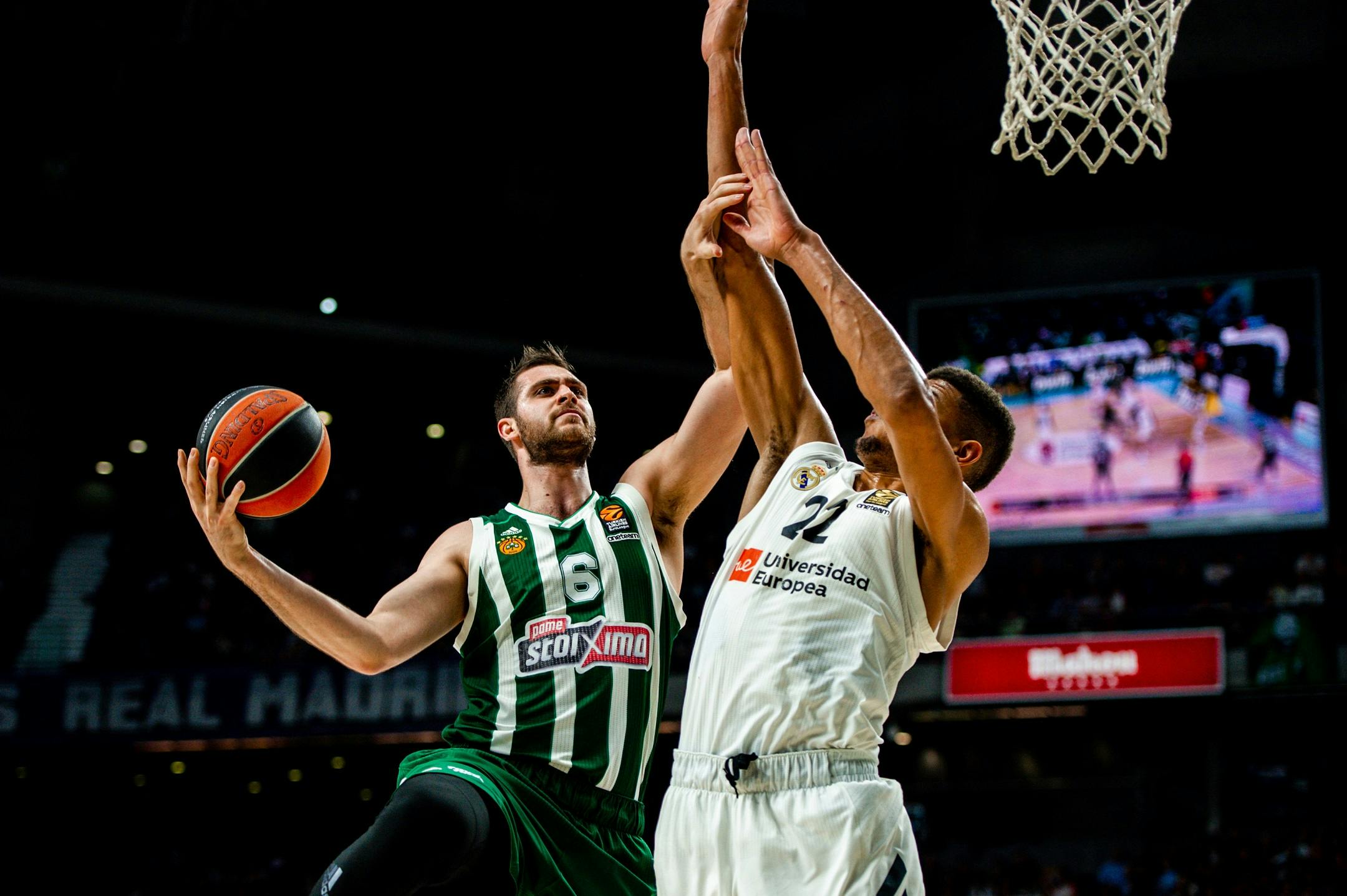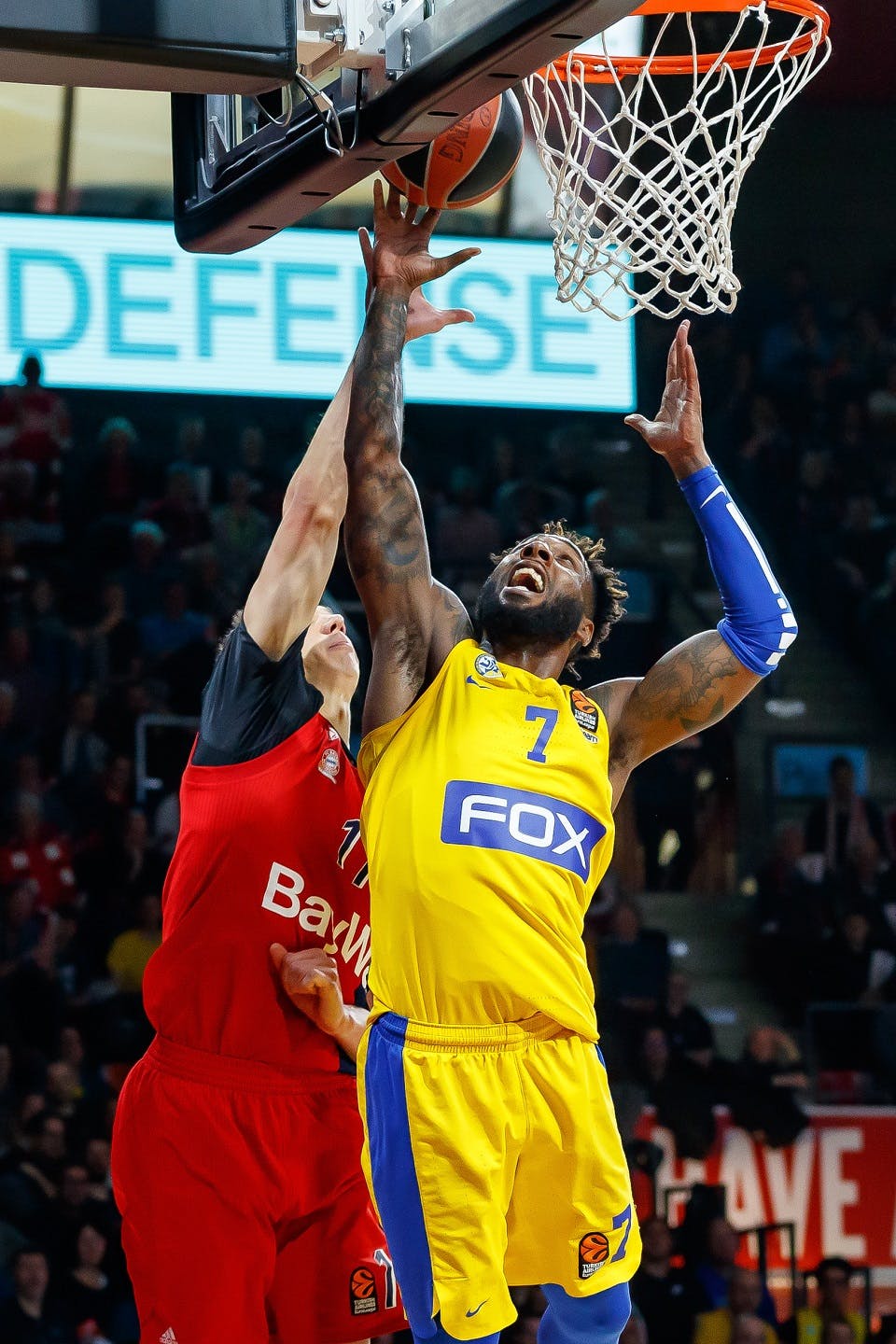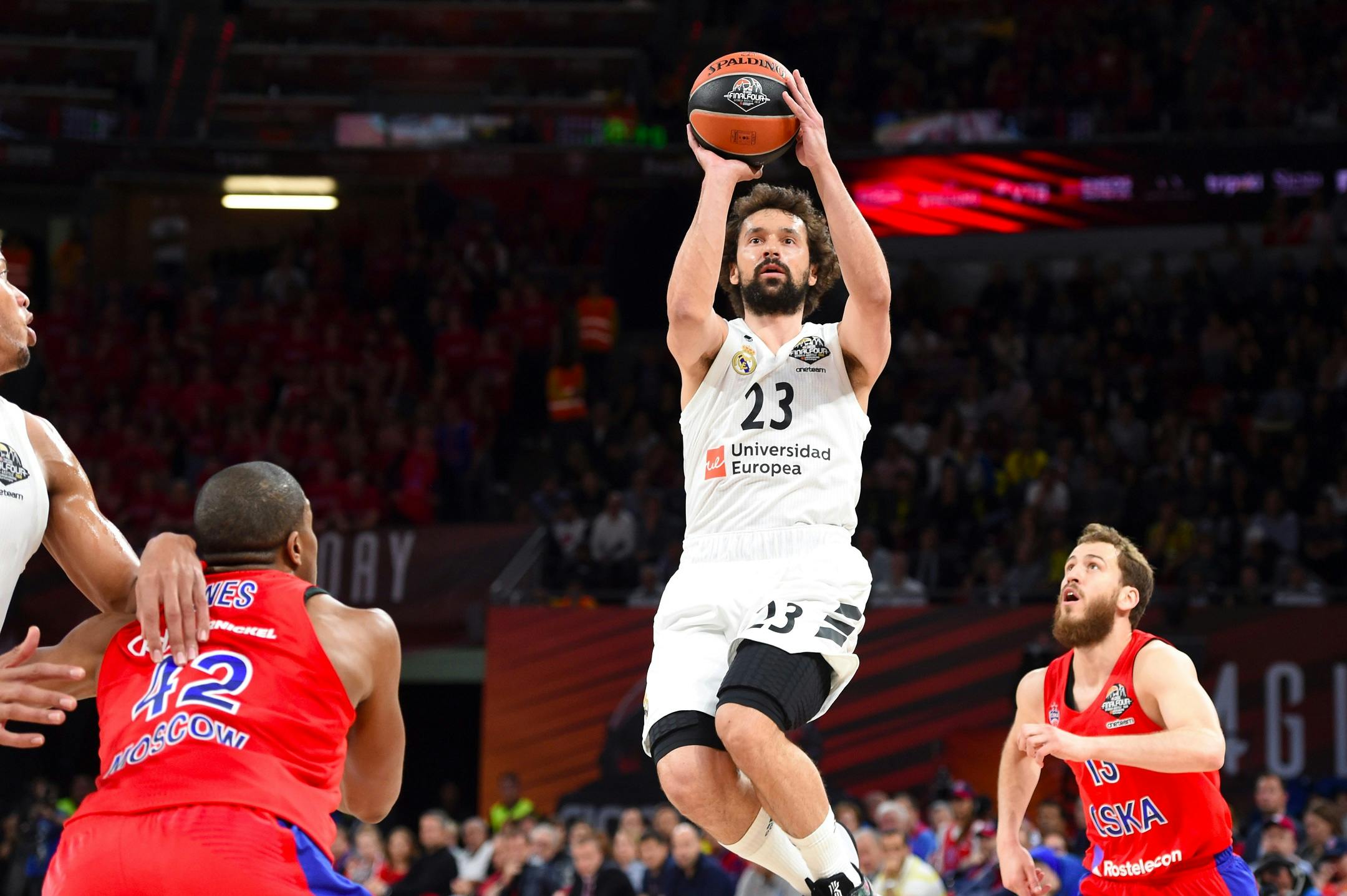Euroleague Basketball has been the pinnacle of European club basketball for almost 20 years. Since its inception in 2000, it has allowed the clubs the opportunity to become stakeholders in their own success, but it’s over the past three seasons that the competition has truly come into its own.
Since the 2015-16 season, when Euroleague Basketball agreed a joint venture partnership with IMG, the competition’s commercial growth has exploded. Overall revenue has more than doubled, growing by 2.3x in three years.
In 2015-16, the Turkish Airlines EuroLeague changed format, from a tournament comprised of a group stage followed by a knockout phase, to a round-robin league followed by post-season playoffs. The positive response from fans and commercial partners has made it the second-fastest growing top-tier sports property in the world, according to research by SportBusiness.
This is visible in all areas of the business – media, sponsorship, live events and hospitality – but the change seen across media and sponsorship has been transformative from both a revenue and an audience perspective. The competition has massively increased revenue in both core and development markets, but has particularly thrived in Spain, Greece and Turkey – markets in which other premium properties have struggled.
Television and live audiences are both growing. Overall attendance-per-match has grown by about 10 per cent across all EuroLeague Licensed clubs – those with a permanent place in the competition – since the joint venture began. Thanks to the change of format, each club is playing a significantly greater number of EuroLeague fixtures per season, boosting revenue for the clubs.
“Our opinion is that the change of the format was fundamental,” says Euroleague Basketball president and chief executive officer Jordi Bertomeu. “The joint venture was at least of the same importance, but without the change of the format it would have been very difficult to tell a new, improved story to our partners.”
The competition expands to 18 teams in 2019-20 – the first of several territorial expansions planned for the coming years. With expansion across western Europe already under way and a UK franchise on the horizon, Euroleague Basketball is set to become premium sports property across every major market across the continent.

Media growth
The biggest driver of revenue for Euroleague Basketball over the past three years has been media rights – particularly via new deals in Spain, Greece, Turkey and Israel. The deal in Spain with streaming platform DAZN has cemented Euroleague Basketball as a top-tier property in the country, while consecutive renewals with Greek pay-television broadcaster Nova have brought strong increases each time.
Turkish broadcaster beIN Sports has enjoyed the excellent performance of Turkish clubs over the past four seasons, and Euroleague’s popularity surge in the country is showing no signs of slowing down. Turkish clubs have appeared in the final for the past four seasons.
“I think that the fact that we have probably fared a little bit better than other properties is the consequence of the growth of basketball in the country,” Bertomeu says. “In the last five years, Turkey has been the country where basketball has been growing in the most significant way.”
Lucrative deals are also being struck in development markets such as France, where broadcast partner RMC Sport covers every game played by ASVEL, the team backed by Olympique Lyonnais football club. ASVEL is guaranteed to compete in the next two seasons of EuroLeague alongside fellow wildcard team FC Bayern Munich, which played in last season’s EuroLeague via domestic qualification.
According to Nielsen research, 1.6 million people in France are very interested in the EuroLeague, with the number rising to two million in Germany. The profile of these consumer is very interesting: wealthier and younger than that of most competing major sports. There is a far greater number of general basketball fans in each country who could potentially become Euroleague fans, providing an excellent foundation to build upon in the two territories.
“Our sales process has been about trying to show the value of Euroleague for different partners,” says Xavier Bidault, commercial director of basketball at IMG. “We’ve done research about what fans think about our clubs, what they think about the Euroleague, how they value Euroleague as part of their pay-television subscription, how it influences their decision to pay for subscription packages. When we’re in the sales process, we can go to different partners and say, ‘this is what we feel is the value of the property’.”
Along with revenue, audiences are also growing. Cumulatively, 1.3 billion people watched the competition on television during 2018-19, and a further 1.8 billion either watched or read about the EuroLeague. The combined 3.1 billion cumulative viewership is eight per cent higher than in the 2016-17 season.
On the digital side, Euroleague Basketball amassed almost 900 million impressions across all social platforms during 2018-19 and had a greater engagement rate than the Uefa Champions League, Premier League, LaLiga and the NBA.

Sponsorship growth
Euroleague Basketball now has 26 different marketing partners spanning food and beverage, IT, insurance, clothing, banking, tourism, motoring, travel and collectibles. Since the creation of the joint venture with IMG and the launch of the new league format, sponsorship revenue has almost doubled.
The rapid growth of the sponsorship and marketing programme is due to three main factors: adopting a more data-driven approach; switching from a platform-based offering to one based on targeting specific demographics; and bringing in staff with the relevant expertise.
“We have a wide variety of sponsors, both on the pan-European scale and on the national scale, and to be able to service those partners, we needed a different structure – a structure that had more resources, more manpower to service those accounts, but most of all had the right expertise. And that’s where we’ve seen a very, very important shift.” says Jose Luis Rosa-Medina, Euroleague Basketball’s senior director of corporate partnerships and licensing.
“On a conceptual level, we changed the way we sold sponsorship from a platform model to demographics model. That has been the most important change,” Rosa-Medina says. “To be able to do that, execute on a sale and deliver accurate activation and integration between different departments, we needed different knowledge and different people.”
This new approach has helped Euroleague Basketball service its partnerships far more effectively, bringing a brand’s desired demographic to them in any way possible – be they international brands or local start-ups. It has also enabled the continued expansion in the number of partnerships it can agree while ensuring its marketing platforms don’t become cluttered.
Rosa-Medina adds: “We’re giving every respective client a space within the demographic they were looking to engage. A 40-year-old woman is going to consume differently from a 25-year-old basketball player, right? We’ve created the platforms, chosen relevant games and relevant programs that engage with that specific demographic, and we give that tailored package to our partners.”
A stable platform for expansion
The expansion of media and sponsorship programmes is all built upon Euroleague’s new-found stability. From 2016-17 to 2018-19, 11 of the 16 EuroLeague clubs held 10-year licences, guaranteeing their participation in the competition. This has enabled broadcasters and brands to feel confident in increasing the scale and duration of their investments.
The 50-per-cent fee increase paid by DAZN from 2019-20 is due to the streaming platform’s confidence that the competition will be strong in Spain each and every year. Real Madrid, Barcelona and KIROLBET Baskonia Vitoria-Gasteiz all possess Licences, ensuring at least three Spanish teams competing every season.
“This has been the main reason why we have been successful in growing the business,” says Bertomeu. “With the knockout system, it’s always about seeing if the clubs are lucky, or who they get in the draw. We could have spent five years without watching a single match between Real Madrid and Panathinaikos.”
Because this match-up is guaranteed every season, the EuroLeague can offer a stable package to broadcasters and brands looking to reach audiences across Europe of all ages and genders.
This stability is also attractive for investors and future franchise owners. The opportunity to guarantee participation in EuroLeague makes owning a team in a major European city an enticing prospect.
Negotiations to open a franchise in the UK have been ongoing for years, and the competition is talking to different investors from the UK and other markets while evaluating where this franchise will be based and when it will join the EuroLeague. Any team created in London will slot straight into the EuroLeague and will likely not play in the country’s domestic league.
The UK is Europe’s biggest media market, and the potential for a basketball team is huge. Nielsen research suggests that basketball has higher participation rates than cricket and rugby, and that 2.1 million people in the UK would be interested in a UK team playing in EuroLeague.
“Our main priority in the UK at this moment is creating a team in London,” says Bertomeu. “This is where we are more focused in this moment, but we are not closing doors. We believe Manchester could be another interesting destination. We are conducting our research together with Nielsen and other partners to help us in taking the right decision and establish a franchise where we believe will be more successful in terms of the financial and market conditions.”

Standing on their own two feet
As centralised revenues are growing consistently, Euroleague is now beginning to focus on helping its clubs integrate into the competition’s ecosystem and provide tools and advice that can boost their revenues.
The Business Operations and Club Services department (BOCS) is dedicated to helping clubs reform financial practises, boost revenue-earning potential and increase social media presence, among other things.
The Euroleague Basketball Business Summit, held in July, was attended by more than 90 business professionals from clubs across the EuroLeague and second-tier EuroCup competitions. The event helped clubs share their success stories and spread commercial knowledge throughout the family of clubs, and furthered the philosophy that EuroLeague stakeholders are only rivals on the court. Off the court, they are business partners looking to achieve the same goals – increased revenue and eventual profitability.
“We believe it is absolutely fundamental to help the clubs to grow their business activities,” Bertomeu says. “We’re trying to help the clubs to develop commercially by establishing and sharing best practices with the clubs and acting as consultancy services for them. BOCS helps them with strategy around selling tickets, optimizing the revenues on game days, digital strategy, packaging sponsorship – all these different verticals of the business. BOCS is not working for us but working for the clubs.”
To speed up this process, Euroleague Basketball is continuing to strengthen its Financial Stability Fair Play Regulations. Shareholder contributions were capped at 65 per cent during 2018-19, and this will be gradually reduced to 40 per cent by 2022-23.
Clubs that exceed the maximum shareholder contribution will face a penalty of between 10 per cent and 180 per cent of the overspend, depending on the severity of the violation. Commercial partnerships will be evaluated to prevent inflated valuations of deals involving the outside interests of shareholders.
Euroleague Basketball’s vision is of a competition that spans the entirety of Europe, with increased parity the result of successful, profitable clubs with solid business foundations. Improved business conditions will lead to a higher standard of basketball and greater potential for clubs to invest in their communities, simultaneously growing basketball from the top down as well as from the grassroots in every major European market.